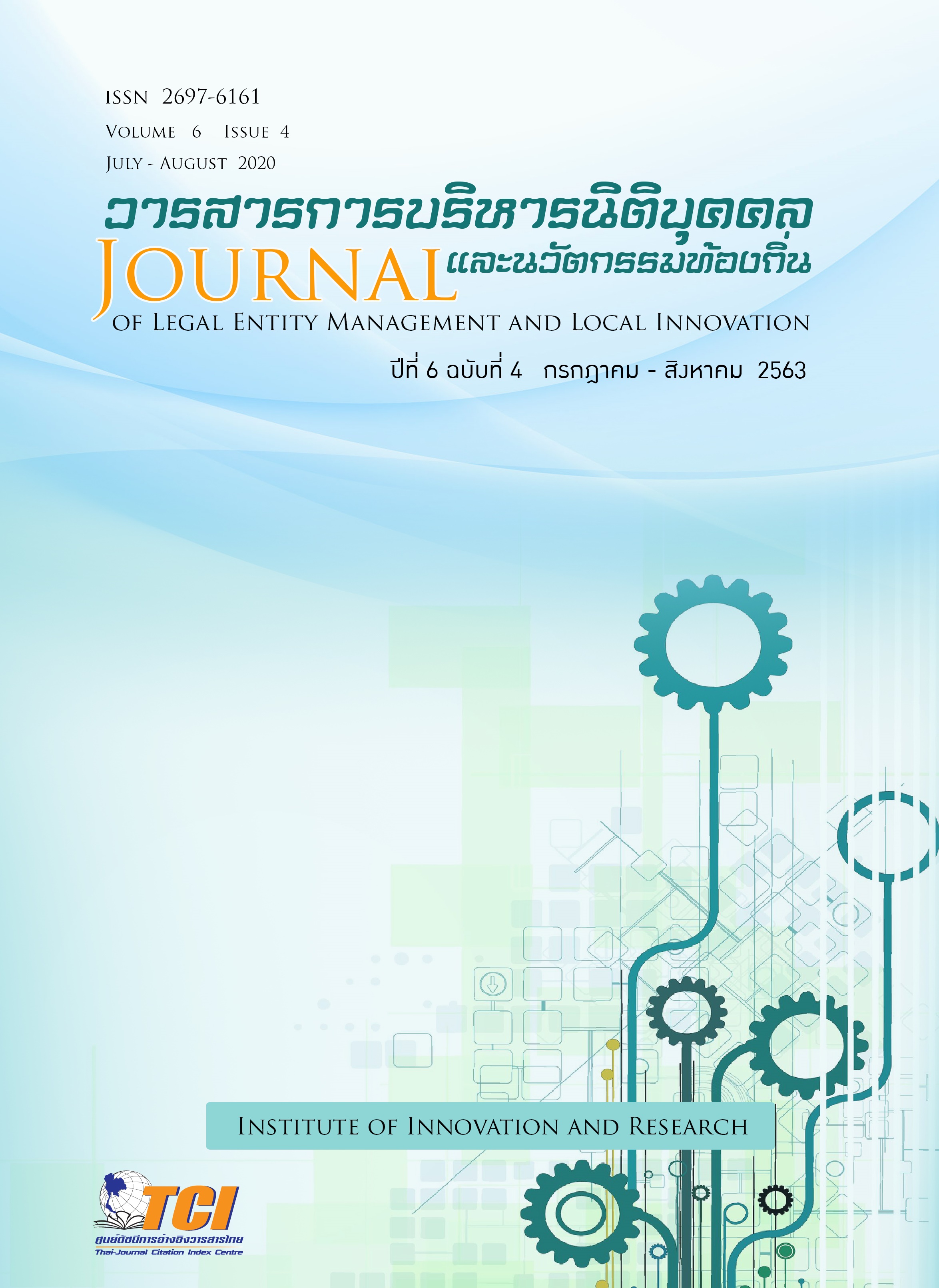Headmen’s Leadership in terms of Roles, Legal Powers, and Duties based on People’s Expectations: A Case Study of Ban Non Than, Ngua Ba Subdistrict, Wapi Pathum District, MahaSarakham Province
Keywords:
leadership, Public Expectations, legal Powers and Duties, HeadmanAbstract
The objectives of this research were 1) to study village headmen’s leadership level in terms of roles, legal powers, and duties according to people’s expectations: a case study of Ban Non Than, Ngua Ba Subdistrict, Wapi Pathum District, Maha Sarakham Province, 2) to examine both actual and expected legal powers and duties of the headman of the case study village, and 3) to propose leadership in terms of roles, legal powers, and duties based on the expectations of the people of the case study village. Using quantitative research methods The target sample group included 165 villagers at Ban Non Than, Ngua Ba Subdistrict, Wapi Pathum District, Maha Sarakham Province. The research instrument was a constructed questionnaire. Statistics for data analysis included percentage (%), mean (), and standard deviation (S.D.). The research findings were as follows: 1) The villagers of the case study village revealed the highest level of their overall expectations of headmen’s leadership in terms of roles, legal powers, and duties. The separated aspects of the headmen’s leadership could be ranged according to the levels of their expectations in a descending order as being a participatory leader, a focusing leader, a guiding leader, and a supporting leader. 2) The overall actual roles, legal powers, and duties of the headman of the case study Ban NonThan were rated at a high level. The separated aspects of this headman’s leadership could be ranged in a descending order as urgent policy administration, registration works, governance and order maintenance, professional development and promotion, natural resource and environment conservation, and civil defense. The headman’s own expectations of leadership as a whole were also revealed at the highest level. The separated aspects of the expectations were ranged in a descending order as professional development and promotion, urgent policy administration, civil defense, registration works, governance and order maintenance, and natural resource and environment conservation. 3) For proposes of headman’s leadership, village headmen should hold certain knowledge of civil laws and criminal laws. They should act as coordinators between agencies and people to work on continuous professional development and promotion. Headmen should provide different communication channels to create knowledge and understandings for the people.


